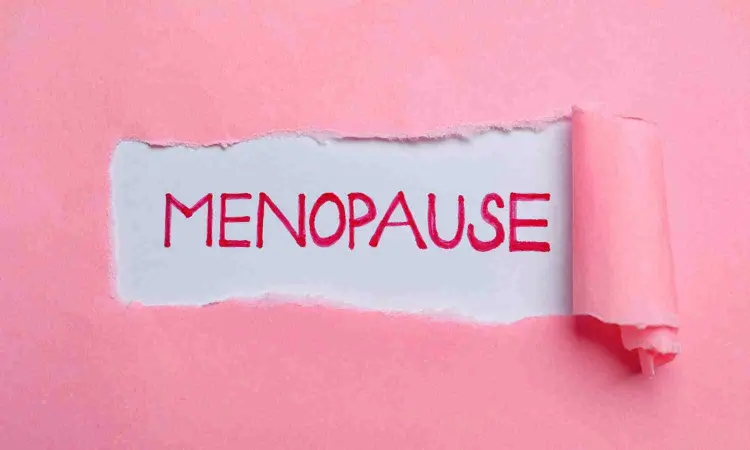- Home
- Medical news & Guidelines
- Anesthesiology
- Cardiology and CTVS
- Critical Care
- Dentistry
- Dermatology
- Diabetes and Endocrinology
- ENT
- Gastroenterology
- Medicine
- Nephrology
- Neurology
- Obstretics-Gynaecology
- Oncology
- Ophthalmology
- Orthopaedics
- Pediatrics-Neonatology
- Psychiatry
- Pulmonology
- Radiology
- Surgery
- Urology
- Laboratory Medicine
- Diet
- Nursing
- Paramedical
- Physiotherapy
- Health news
- Fact Check
- Bone Health Fact Check
- Brain Health Fact Check
- Cancer Related Fact Check
- Child Care Fact Check
- Dental and oral health fact check
- Diabetes and metabolic health fact check
- Diet and Nutrition Fact Check
- Eye and ENT Care Fact Check
- Fitness fact check
- Gut health fact check
- Heart health fact check
- Kidney health fact check
- Medical education fact check
- Men's health fact check
- Respiratory fact check
- Skin and hair care fact check
- Vaccine and Immunization fact check
- Women's health fact check
- AYUSH
- State News
- Andaman and Nicobar Islands
- Andhra Pradesh
- Arunachal Pradesh
- Assam
- Bihar
- Chandigarh
- Chattisgarh
- Dadra and Nagar Haveli
- Daman and Diu
- Delhi
- Goa
- Gujarat
- Haryana
- Himachal Pradesh
- Jammu & Kashmir
- Jharkhand
- Karnataka
- Kerala
- Ladakh
- Lakshadweep
- Madhya Pradesh
- Maharashtra
- Manipur
- Meghalaya
- Mizoram
- Nagaland
- Odisha
- Puducherry
- Punjab
- Rajasthan
- Sikkim
- Tamil Nadu
- Telangana
- Tripura
- Uttar Pradesh
- Uttrakhand
- West Bengal
- Medical Education
- Industry
Menopause drug fezolinetant safely reduces hot flushes for almost 6 months, reveals research

Fezolinetant reduces the frequency and severity of hot flushes during menopause for 24 weeks, without serious side effects, according to research presented at the 26th European Congress of Endocrinology in Stockholm. These findings provide further evidence of the benefits of using this non-hormonal preventative drug in women experiencing hot flushes during menopause.
Hot flushes and night sweats, also known as vasomotor symptoms (VMS), affect up to 80% of women going through menopause and can severely impact daily life, exercise and sleep. Hormone replacement therapy (HRT) is the most effective treatment, but these drugs are not suitable for some women, such as survivors of endocrine cancer or those who have untreated high blood pressure; and others choose not to take them mainly due to the potential side effects.
The new type of non-hormonal drug, fezolinetant-approved by the US Food and Drug Administration (FDA) and the European Medicines Agency (EMA) last year – acts directly on the temperature-control pathway and alleviates these symptoms. Specifically, it works by blocking a brain protein called neurokinin-3 (NK-3), involved in regulating body temperature. But unlike hormone therapy which replaces estrogen, fezolinetant will not alleviate other menopausal symptoms such as mood changes or vaginal dryness.
Previous late-stage clinical trials (SKYLIGHT 1 and SKYLIGHT 2) have shown that fezolinetant reduces both the frequency and severity of hot flushes in women with moderate or severe symptoms compared to placebo over 12 weeks. This phase 3b study, known as DAYLIGHT and supported by Astellas Pharma, investigated the effect of fezolinetant use over 24 weeks.
Researchers examined 453 menopausal women aged 40–65 with moderate or severe hot flushes who were unsuitable for hormone replacement therapy, after giving them 45mg of fezolinetant or placebo, and found that women who took fezolinetant had less frequent and severe hot flushes throughout the 24 weeks. Women taking fezolinetant had consistently fewer hot flushes in the first week, with the strongest decrease during the first 3 days. The severity of their hot flushes was also reduced dramatically by the drug in the first week from the second day. No safety issues were found for the 45mg fezolinetant dose over the 24 weeks.
“DAYLIGHT is the first study of fezolinetant to investigate placebo-controlled efficacy over 24 weeks”, said Professor Antonio Cano from the INCLIVA Research Institute in Valencia, Spain, who was involved in the study.
“Fezolinetant was effective and well tolerated for 24 weeks and the effect was observed as early as day 1 of treatment. While there are other NK antagonists, none have shown a similar concurrence of efficacy and safety in clinical studies with a sufficiently high number of participants.”
“A safe and effective non-hormonal molecule may be available for the very high number of menopausal women who suffer from vasomotor symptoms and improve their overall health, quality of life and work performance. However, these symptoms vary in prevalence or intensity depending on ethnicity-for example, VMS are more frequent and severe in black women-so more clinical data are needed in different populations or geographical areas in the world.”
Reference:
Late-stage study finds menopause drug fezolinetant safely reduces hot flushes for almost 6 months, European Society of Endocrinology, Meeting: European Congress of Endocrinology.
Dr Kamal Kant Kohli-MBBS, DTCD- a chest specialist with more than 30 years of practice and a flair for writing clinical articles, Dr Kamal Kant Kohli joined Medical Dialogues as a Chief Editor of Medical News. Besides writing articles, as an editor, he proofreads and verifies all the medical content published on Medical Dialogues including those coming from journals, studies,medical conferences,guidelines etc. Email: drkohli@medicaldialogues.in. Contact no. 011-43720751


